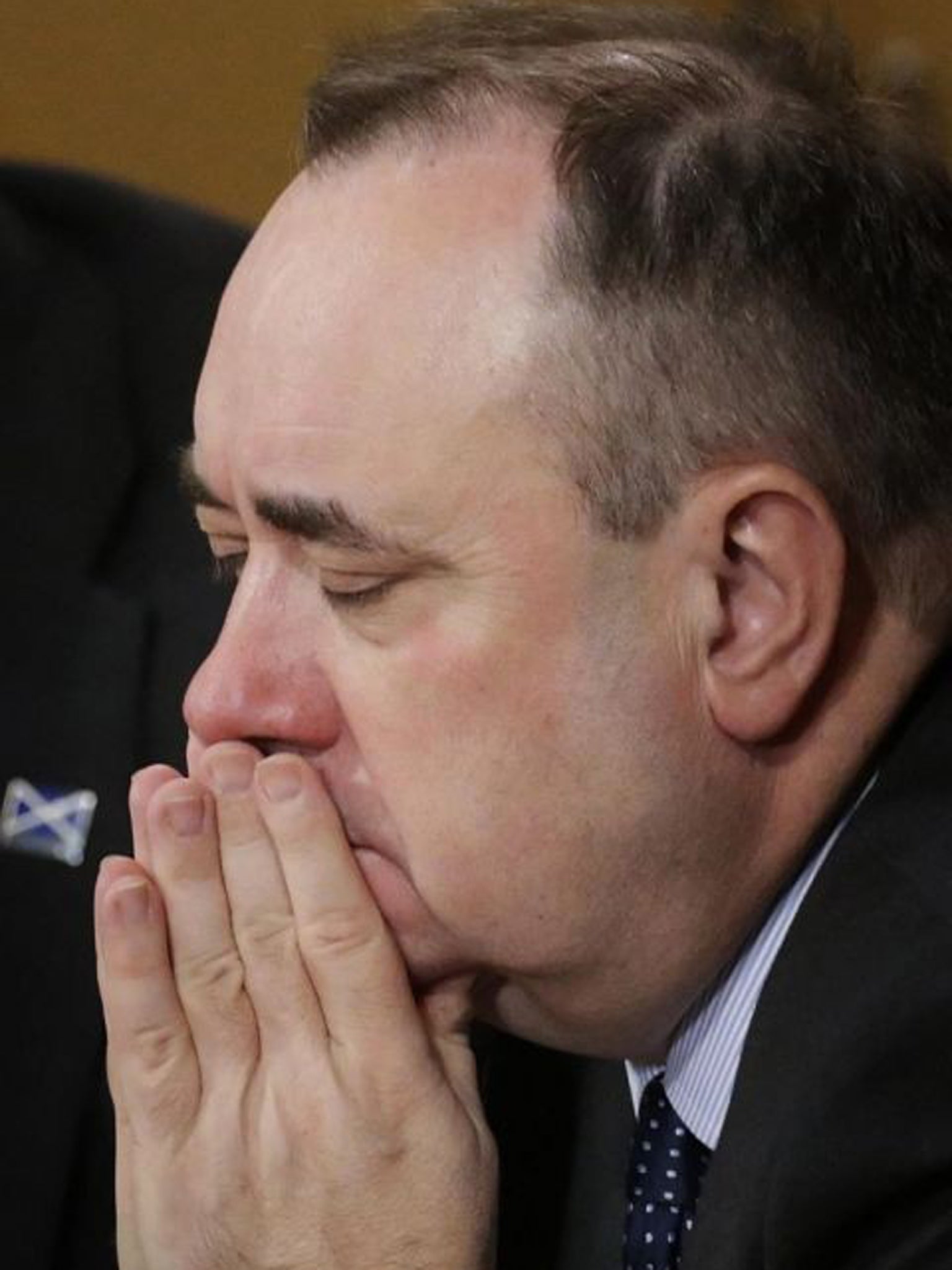Scottish Government forced to change 'biased' independence referendum question
The tone of the original question 'Do you agree that Scotland should be an independent country?' was deemed to encourage agreement

Support truly
independent journalism
Our mission is to deliver unbiased, fact-based reporting that holds power to account and exposes the truth.
Whether $5 or $50, every contribution counts.
Support us to deliver journalism without an agenda.

Louise Thomas
Editor
The Scottish Government has been forced to change the wording of the question that will be put to voters in next year’s independence referendum after the Electoral Commission concluded its preferred option was biased towards a ‘yes’ vote.
First Minister Alex Salmond had proposed to ask Scottish voters: ‘Do you agree that Scotland should be an independent country?’
But research carried out by the Commission found that voters thought the question implied that Scotland being an independent country was a ‘good thing’ whilst others found the tone “forceful” and intended to encourage agreement.
As a result the Commission recommended the question: ‘Should Scotland be an independent country? Yes/No’ a wording that has now been accepted by the Scottish Government.
The commission also suggested higher spending limits for the referendum campaign than the Scottish Government proposed.
Pro-independence group Yes Scotland and Better Together, which wants Scotland to remain in the UK, should be allowed to spend up to £1.5 million, double the £750,000 suggested by the SNP administration.
These limits would “allow each of the parties to campaign on a similar scale as they did at the 2011 election”, the commission said, although the limits would only apply in the 16-week period before the referendum, due to be held in autumn next year.
In its report on plans for next year’s vote the commission said that people taking part in its public opinion research wanted factual information on the implications of independence to be made available in advance of the referendum.
It recommended that the UK and Scottish Governments should clarify what process will follow the referendum in sufficient detail to inform people what will happen if most voters vote ‘Yes’ and what will happen if most voters vote ‘No’.
Deputy First Minister Nicola Sturgeon welcomed that and again called for talks the UK Government on how an independent Scotland might practically split for England, Wales and Northern Ireland ahead of the vote.
“I have been calling for the UK Government to enter discussions to allow the voters to be better informed, but so far they have refused,“ she said.
“This would not be pre-negotiation on the terms of independence but vital information for voters that will allow them to make an informed choice in autumn 2014.”
But in the House of Commons David Cameron rejected this.
“Of course we will work with the Scottish Government in providing information, but let me be clear about what we will not do. We will not pre-negotiate Scotland’s exit from the United Kingdom.”
Ms Sturgeon also claimed she was ”particularly delighted” with the conclusion the Electoral Commission had reached on the referendum question.
“While its view is that our proposed question was clear, simple and easy to understand, I am nevertheless happy to accept their recommended change. Their advice is based on rigorous testing and we will submit the Electoral Commission's recommended question to the Scottish Parliament as part of the Referendum Bill.”
But Alistair Darling, who leads the Better Together campaign, accused the SNP of trying to rig the question.
“Anyone who knows anything about the nationalist will know that they’ll chance their arm, if you like. I’ve always thought that the Electoral Commission, being a neutral body, being a referee in this contest, would look at this closely and I’m quite happy with the judgment they reached.”
Subscribe to Independent Premium to bookmark this article
Want to bookmark your favourite articles and stories to read or reference later? Start your Independent Premium subscription today.
Join our commenting forum
Join thought-provoking conversations, follow other Independent readers and see their replies
Comments